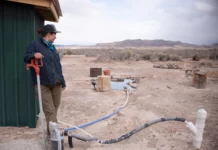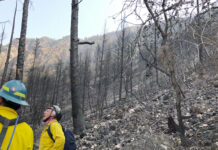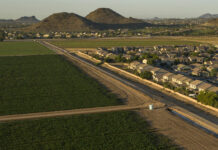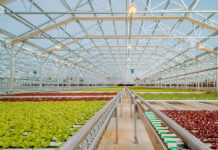What should farmers grow in the desert?
As the Colorado River withers, a rubber company tries to persuade Arizona farmers to grow a latex-producing crop that’s adapted to arid conditions.
Once ‘paradise,’ parched Colorado valley grapples with arsenic in water
Decades of climate change-driven drought, combined with the overpumping of aquifers, is making the valley desperately dry — and appears to be intensifying the levels of heavy metals in drinking water.
Water and colonialism in New Mexico – Water Buffs Podcast ep. 10 – Julia Bernal
Julia Bernal, director of the Pueblo Action Alliance, talks to Water Desk Director Mitch Tobin about the legacy of colonialism in New Mexico and its impact on water issues.
Wildfires and wetlands
Residents in Glenwood Springs, Colorado, see first-hand how wildfires can damage wetlands and watersheds vitally important to their water supply. Jerd Smith reports for The Water Desk.
https://player.vimeo.com/video/553127855
Length: 2:03
Download script
Download...
Arizona’s water supplies are drying up. How will its farmers survive?
By Stephen R. Miller, Food and Water Reporting Project
Photography by Bill Hatcher
You could almost visit Arizona without noticing it was a farming state. If you flew into Phoenix in an aisle seat,...
A dry subject: how scientists map drought conditions
Scientists have a variety of measures of drought, but some are starting to use the term "aridification" to describe the long-term drying of the Southwest.
Thirsty future for American West, as “megadrought” grips some of the fastest-growing U.S. cities
By Alexandra Tempus, Fair Warning
In 2002, Utah was reeling from four years of dry conditions that turned the state “into a parched tinderbox,’’ as the Associated Press reported at...
Paddling the Green River to report on Western water issues – Water Buffs Podcast...
Journalist Heather Hansman floated the Green River to explore water issues in the American West, then wrote a fascinating book about her journey.
As the Salton Sea shrinks, it leaves behind a toxic reminder of the cost...
Scientists fear that eventually the toxic residue of more than a century of agricultural runoff will be blown into the air — and into the lungs of residents.
Farms use 80% of the West’s water. Some in Colorado use less, a lot...
A greenhouse in Colorado is using 95 percent less water to grow food compared to traditional agricultural practices.












